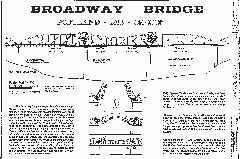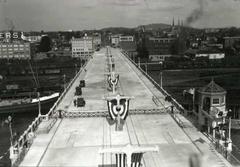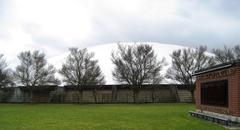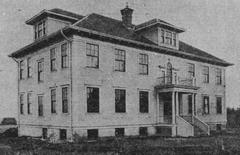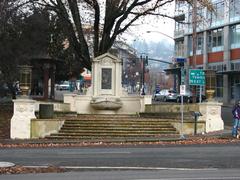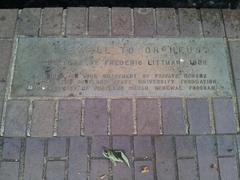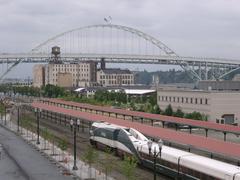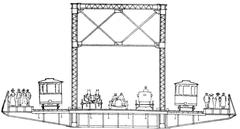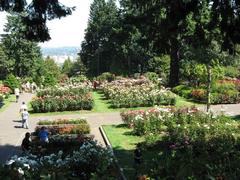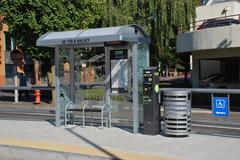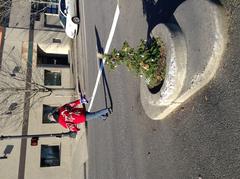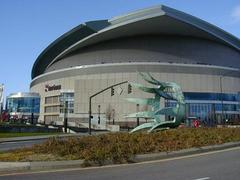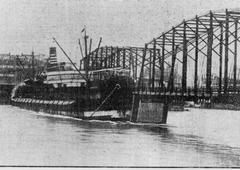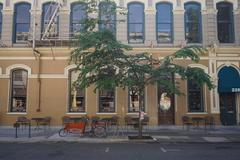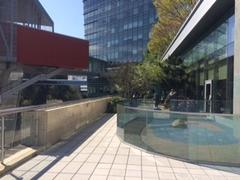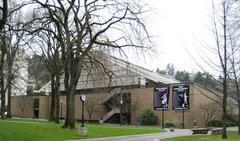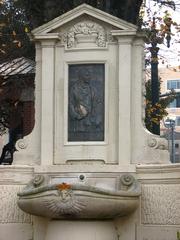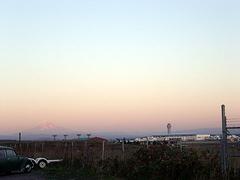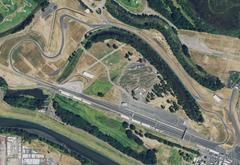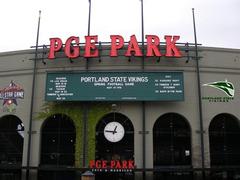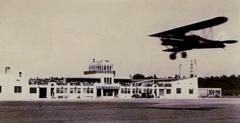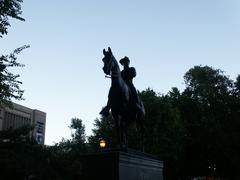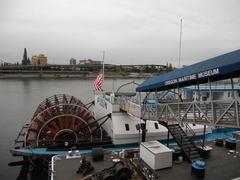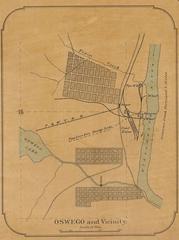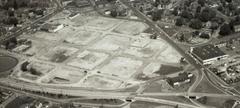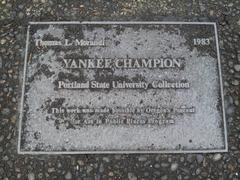Kelley Point Park, Portland, Oregon: Visiting Hours, Tickets, and Attractions Guide
Date: 04/07/2025
Introduction: History and Significance
Kelley Point Park is a remarkable urban natural area at the confluence of the Willamette and Columbia Rivers in North Portland, Oregon. Spanning approximately 90–104 acres, the park features riparian forests, wetlands, and river shorelines that have supported diverse ecosystems and human activity for centuries. The land is significant to Indigenous peoples such as the Multnomah and other Chinookan-speaking tribes, who depended on the rivers for transportation, fishing, and trade. The Lewis and Clark Expedition passed nearby in the early 1800s, marking the area’s importance in Euro-American exploration and the westward expansion of the United States.
The park is named after Hall Jackson Kelley, an influential 19th-century proponent of American settlement in the Oregon Country. Although his vision of founding a city at this confluence did not materialize, Kelley’s advocacy helped shape the region’s development. Today, Kelley Point Park provides Portland residents and visitors with free daily access to scenic trails, wildlife habitats, and interpretive displays, making it a vibrant destination that connects nature, history, and recreation. (Portland Parks & Recreation - Kelley Point Park)
Guide Contents
- Early History and Geographic Significance
- Hall J. Kelley and the Park’s Name
- Park Development and Transformation
- Environmental and Ecological Value
- Historical Markers and Interpretation
- Cultural and Urban Significance
- Visiting Kelley Point Park: Hours, Tickets, and Accessibility
- Visiting Hours
- Admission Information
- Accessibility
- Travel Tips
- Visitor Experience and Unique Features
- Events and Tours
- Photography and Amenities
- Nearby Attractions
- Infrastructure Projects and Future Plans
- Frequently Asked Questions (FAQ)
- Call to Action
- Sources
Early History and Geographic Significance
Kelley Point Park occupies a strategic site at the confluence of the Willamette and Columbia Rivers—an intersection that has shaped regional transportation, trade, and ecology for millennia. Indigenous communities, including the Multnomah and Chinookan-speaking tribes, relied on this location for fishing, gathering, and travel. The arrival of Euro-American explorers in the early 19th century, including the Lewis and Clark Expedition, further highlighted the area’s significance as a crossroads and gateway to the Pacific Northwest.
The region later became a focal point for fur traders, missionaries, and pioneers moving along the Oregon Trail, marking the park’s land as an enduring touchstone in the history and development of Portland.
Hall J. Kelley and the Park’s Name
The park is named after Hall Jackson Kelley, a New Hampshire-born educator, surveyor, and writer who, starting in the 1820s, became a leading voice for U.S. settlement in the Oregon Country. Kelley envisioned the confluence as the site for a major American city and lobbied Congress to promote migration westward, emphasizing the region’s potential. Although Kelley’s dream of city-building here was never realized, his advocacy played a meaningful role in encouraging American expansion and settlement. The park’s name honors his legacy and contributions to the region’s history. (Oregon Runs)
Park Development and Transformation
Following settlement in the mid-1800s, the land now home to Kelley Point Park was used for agriculture, timber, and shipping. Industrial development along the rivers threatened the area’s open space, but by the early 20th century, appreciation for the site’s beauty and ecological value spurred efforts to preserve it. The City of Portland began acquiring land at the confluence for recreational purposes, and in 1984, Kelley Point Park was officially established, protecting over 100 acres of wetlands, forests, and shoreline for public use.
Environmental and Ecological Value
The park’s unique setting at the meeting of two great rivers supports a rich variety of habitats. Stands of mature black cottonwood, wetlands, and sandy beaches provide homes for birds, mammals, fish, and more. Notable wildlife includes ospreys, herons, beavers, otters, and migratory waterfowl. The rivers themselves support Chinook and Coho salmon, steelhead, and sturgeon, especially during spawning seasons.
The City of Portland, in partnership with environmental organizations, actively manages the park’s habitats through invasive species control, native plant restoration, and water quality monitoring—efforts that sustain Kelley Point Park as a vital urban green space. (Oregon Runs)
Historical Markers and Interpretation
Interpretive signage throughout Kelley Point Park highlights its Indigenous heritage, the significance of the rivers, and the story of Hall J. Kelley. Panoramic viewpoints and trails encourage reflection on the area’s layered history, offering visitors a chance to learn about early exploration, local trade, and the enduring influence of the region’s waterways.
Cultural and Urban Significance
Kelley Point Park stands out in Portland’s park system as a place where nature and history intersect. Its relatively undeveloped landscape invites visitors to walk, run, birdwatch, picnic, or simply enjoy the riverscape. The park’s ongoing restoration and educational programming foster community engagement and reinforce the city’s commitment to balancing recreation with environmental stewardship.
Visiting Kelley Point Park: Hours, Tickets, and Accessibility
Visiting Hours
- Standard Hours: Open daily from 7:00 a.m. to 10:00 p.m., consistent with Portland city park policies. Some guides specify earlier opening times (as early as 5:00 or 6:00 a.m.), so check the official website for current information.
Admission Information
- Entry: Free; no tickets or passes required for entry.
Accessibility
- Trails: Both paved and unpaved options; ongoing improvements are making paths more accessible for wheelchairs and strollers.
- Parking: Free, ample parking at the main entrance. ADA spaces available.
- Restrooms: Accessible restrooms located near main paths.
- Public Transit: Served by TriMet bus routes; access to the city’s 40-Mile Loop trail system.
- Note: Drinking water is not provided; bring your own supply.
Travel Tips
- Dress for the weather; bring food and water, as there are no concessions.
- Dogs are welcome but must remain on leash.
- Some trails may be muddy after rain; plan accordingly for mobility needs.
- Cell phone reception can be limited due to the park’s location.
Visitor Experience and Unique Features
Events and Tours
- The park occasionally hosts guided nature walks, planting events, and educational activities—see the Portland Parks & Recreation calendar.
- No regular guided tours, but special events occur throughout the year.
Photography and Amenities
- Scenic river confluence viewpoints are excellent for sunrise and sunset photography.
- Amenities include picnic tables, benches, interpretive signage, restrooms, and walking trails.
- Launch sites for canoes and kayaks; no swimming allowed due to strong currents and boat traffic.
Nearby Attractions
- Cathedral Park (under the St. Johns Bridge)
- Fort Vancouver National Historic Site (across the Columbia River)
- Smith and Bybee Wetlands Natural Area
- Sauvie Island (farm visits, wildlife viewing)
Infrastructure Projects and Future Plans
- Trail Connectivity: New ADA-accessible bicycle and pedestrian trails are under construction to link Kelley Point Park with the Willamette Greenway and North Portland Greenway, closing a key gap in Portland’s regional trail network. (Portland City Planning)
- Safety: Swimming and water entry are strictly prohibited due to dangerous currents; water quality is monitored, but currents remain hazardous.
- Habitat Restoration: Ongoing native planting, invasive species control, and wildlife monitoring.
- Cultural Initiatives: Development of a formal land acknowledgement with local tribes is underway.
Frequently Asked Questions (FAQ)
Q: What are Kelley Point Park’s visiting hours?
A: Open daily from 7:00 a.m. to 10:00 p.m. (Portland Parks & Recreation - Kelley Point Park)
Q: Do I need a ticket or pay an entrance fee?
A: No, admission is free.
Q: Is swimming allowed?
A: No; swimming and water entry are prohibited due to dangerous currents.
Q: Are dogs allowed?
A: Yes, but they must be kept on leash.
Q: Is the park accessible to people with disabilities?
A: Yes, with paved and improved unpaved trails, accessible restrooms, and parking.
Q: Are there guided tours?
A: No regular tours, but special events and walks are held seasonally.
Q: What amenities are available?
A: Picnic areas, restrooms, trails, interpretive signage, and canoe/kayak launch sites. No drinking water provided.
Call to Action
Plan your visit to Kelley Point Park and experience the convergence of Portland’s natural beauty and historical legacy. For maps, event updates, and accessibility information, visit the official park website. Download the Audiala app for audio tours and interactive maps, and follow Portland Parks & Recreation on social media for the latest news and volunteer opportunities.
Sources
- Portland Parks & Recreation - Kelley Point Park
- Oregon Runs
- Everything Pacific Northwest
- Portland City Planning - Kelley Point Park Project
- AccessTrails - Kelley Point Park Overview
- Swim Guide - Kelley Point Park Water Quality
- Portland Parks & Recreation Events
